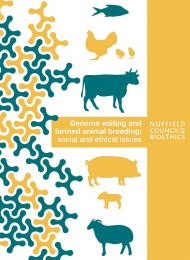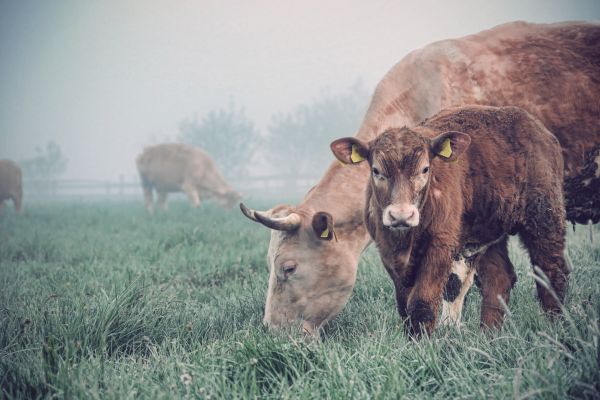Genome editing and farmed animal breeding: social and ethical issues
Report
Published 01/12/2021

Evidence gathering – genome editing and farmed animals
Throughout 2019 we undertook a range of evidence-gathering activities to inform the deliberations of our working group examining the ethical issues raised by genome editing and farmed animals.
Background papers
The working group commissioned one literature review and undertook two evidence reviews:
- A review of research on public attitudes to genetically modified foods and related areas and their implications for genome editing of farmed animals commissioned from Gene Rowe (Gene Rowe Evaluations) and Richard Watermeyer (University of Bath).
- A review of literature and publicly available data on the longitudinal effect of balanced breeding strategies in context of historical health and welfare outcomes (PDF) carried out by Molly Gray.
- Animal sentience and consciousness: a review of current research (PDF) carried out by Arzoo Ahmed and Claudia Corradi.
Public dialogue on genome editing in farmed animals
To help inform our inquiry, we commissioned a public dialogue, run by Basis Social in collaboration with Bright Harbour. The aim of the dialogue was to provide an opportunity for people to explore the values and considerations that informed their response to genome editing technologies and the implications for farmed animals, the food system and society more generally. Read more.
Fact-finding meetings and panel interviews
The working group held a series of roundtable meetings with a wide range of individuals and representatives of organisations. More details about each meeting is available at Appendix 1 of the full report.
Site visit
The working group organised a visit to the Roslin Institute at the University of Edinburgh in September 2019. The visit included a series of presentations from researchers at the Roslin Institute, a presentation by Abacus Bio relating to public views on genome editing and farmed animals, and a farm visit (including a tour of the Large Animal Unit and Intensive Care Unit).
Call for evidence
Our call for evidence ran from 20 June - 20 September 2019. The call was an open invitation to anyone with an interest in genome editing and farmed animals to contribute their experiences, perspectives and opinions to help shape the working group’s analysis at this early stage of the project.
Download the consultation questions.

Share